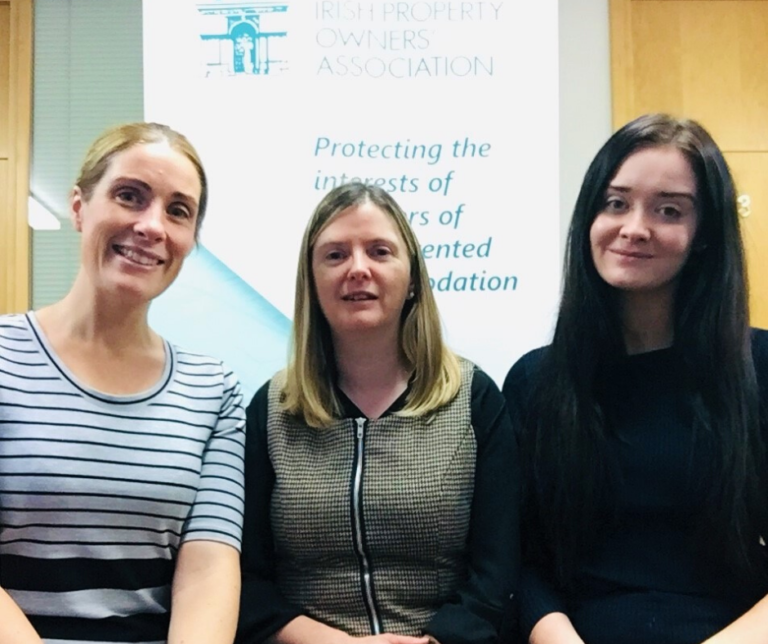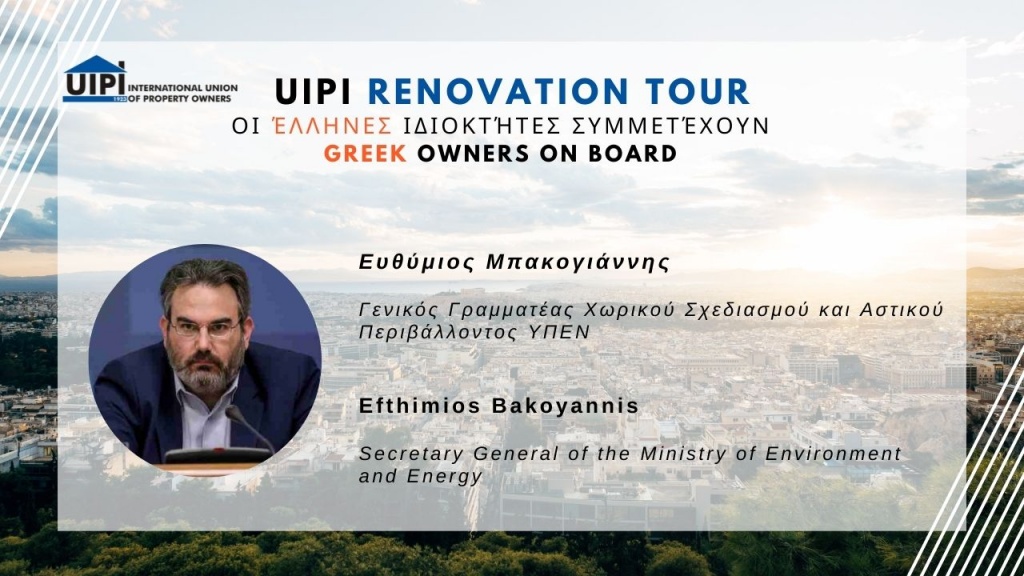For the third issue of our article series “Meet Our Member”, we head to Dublin to meet The Irish Property Owners’ Association (IPOA). For nearly 30 years, this organisation has been working intensively to protect the interests of private residential property owners across Ireland. Chairperson, Stephen Faughnan, and Margaret McCormick, Information Officer at IPOA, have opened the doors of their association and shared with us an interesting overview of its activities and work.
Would you like to tell us something about your association?
The Irish Property Owners’ Association was founded in 1993, and it is a non-profit organisation that seeks to protect and promote the interests of private residential property owners, while encouraging the supply of good quality accommodation and professional management. Our members’ profile is quite extensive and includes corporate, public and private employees, pensioners and self-employed individuals. Our membership base counts approximately 1500 subscribers and is rapidly growing! It consists of both full and part-time landlords.
Our association is run by a Committee of 14 property owners and we have a full-time staff, assisted by consultants and advisors.

Which services do you provide to your members?
IPOA is the one-stop-shop for advice and assistance! We assist members in dealing with matters relating to residential tenancies, taxation, waste management, energy and any other issue affecting landlords in the private rental sector. Our on-demand phone support is a key feature of the service we provide. Our dedicated team provides members with direct, friendly and confidential advice on a range of matters from practical day-to day concerns to complex issues. Moreover, due to the complexity of rules governing property and property owners’ activities in Ireland, IPOA also provides education and training for landlords about their legal rights and responsibilities. Last but not least, IPOA lobbies in the interests of property owners, providing a platform and voice that is heard and seen by Government, media and the public nationwide.
How do you normally engage with your members?
We engage with our members in numerous ways including telephone advice lines, “drop-in clinics” held throughout the country, information events, e-zines and printed newsletter to keep our members up to date with information. Our website is also a comprehensive communication tool utilised to engage our audience. It includes a general area for non-members, and a restricted one for our subscribers, where information on legislation, taxation and guides to managing property can be found. We are also active on different social media platforms!
Can you tell us a bit more about your lobbying activities?
Depending on the issue, our lobbying actions deploy different strategies. Generally speaking, as we deem extremely important to be part of the public debate, we always try to engage with a wide range of public representatives nationwide. This happens of course through our national networks, with a lot of support drawn from our membership! In line with our role of promoter and representative of Irish property owners’ interests, we also issue statements to press and media, and participate on various TV/radio programmes and general debates. Recent lobbying activities included fighting the proposal for abolishment of Section 23 Relief (i.e. Rented Residential Relief in a Tax Incentive Area) where we achieved positive results. We also successfully lobbied for the reinstatement of 100% mortgage interest relief in the private rental sector.

We are aware that Ireland is going through a harsh housing crisis. Would you tell us a bit more about it and how this affects your members?
The Irish private rental sector has been going through an unprecedented period of legislative change, which is mainly due to the increasing need for affordable accommodation. We believe that the abolishment of bedsit accommodation exacerbated this critical setting by further shrinking the portion of affordable housing, which has not matched with sufficient construction of social housing. The introduction of additional complex legislative requirements has resulted in a lot of the traditional investors exiting the market. Rent control was introduced in December 2016, without taking into account the level of the rent and, in our view, this policy measure is failing to achieve its purported objective. Bringing rent levels substantially below market rate cannot be sustainable in the long term, as it affects not only the income levels but also the value of the property, with a detrimental effect on the overall housing market.

If you were to ask something from your national politics, what would it be?
Overall, a simplification of the legislation around the private rental sector is much needed in our view. We also wish that the private rental sector is treated as a business, allowing normal business taxation to apply!
What do you expect from this new EU legislature?
We hope that the new EU legislature, while designing EU policies which have an impact on the housing sector, always takes into consideration the perspectives of both landlord and tenant. Legislation, be it at national or European level, should be formulated to achieve a fair balance of the rights of both parties, and to apply a more realistic approach to each and every sector involved!



